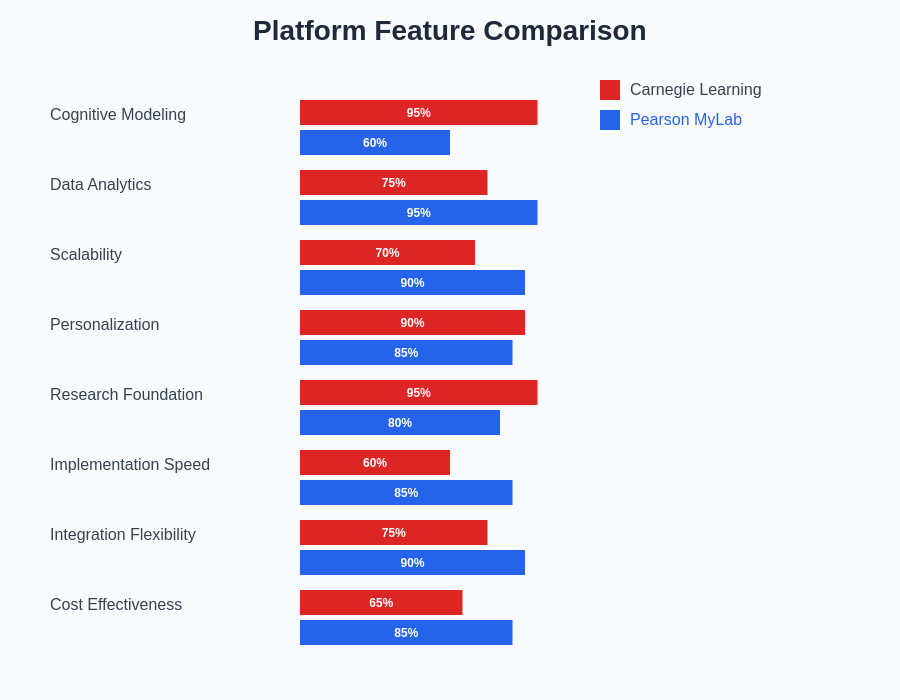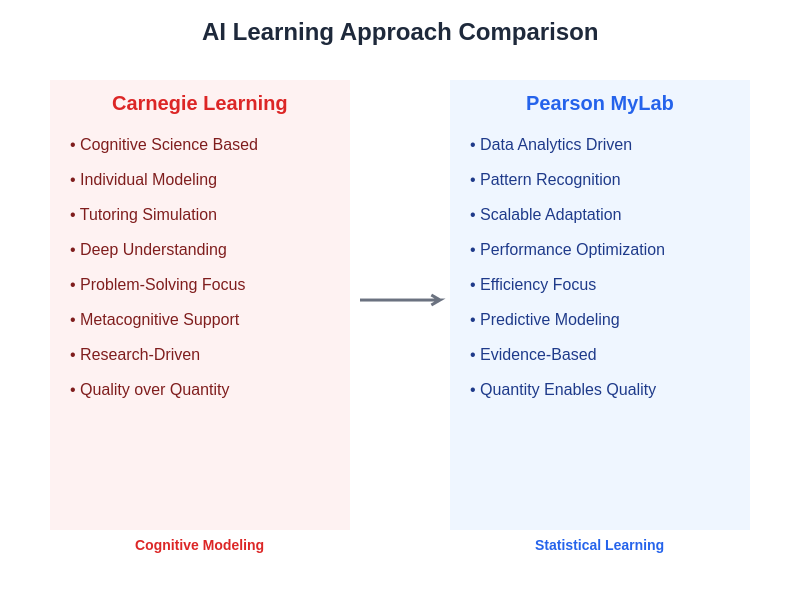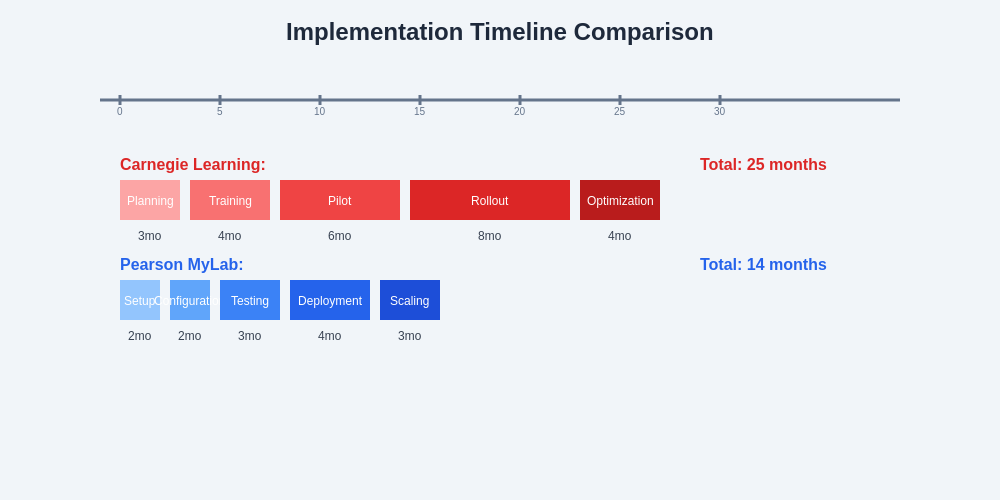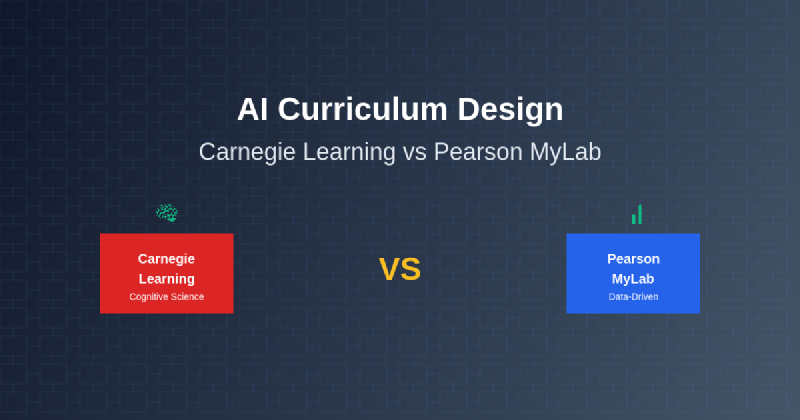The educational technology landscape has been fundamentally transformed by artificial intelligence, with adaptive learning platforms revolutionizing how curricula are designed, delivered, and optimized for individual student needs. Among the leading innovators in this space, Carnegie Learning and Pearson MyLab represent two distinct yet powerful approaches to AI-driven curriculum design, each offering unique methodologies for creating personalized educational experiences that adapt in real-time to student performance and learning patterns.
Explore the latest AI educational trends to understand how cutting-edge technology is reshaping traditional learning paradigms and creating unprecedented opportunities for educational innovation. The evolution of AI in education represents more than technological advancement; it embodies a fundamental shift toward truly individualized learning experiences that recognize and respond to the unique cognitive patterns and learning preferences of each student.
Carnegie Learning: Cognitive Science Meets Artificial Intelligence
Carnegie Learning has established itself as a pioneer in the integration of cognitive science with artificial intelligence to create sophisticated adaptive learning environments. The platform’s foundation rests on decades of research conducted at Carnegie Mellon University, where cognitive scientists and AI researchers collaborated to develop systems that mirror human tutoring behaviors while leveraging machine learning algorithms to optimize educational outcomes across diverse student populations.
The company’s approach to curriculum design centers on the concept of cognitive modeling, where AI systems continuously analyze student interactions, problem-solving strategies, and learning trajectories to build comprehensive profiles of individual cognitive strengths and areas requiring additional support. This deep understanding enables the platform to present content in sequences and formats that align with each student’s optimal learning pathways, creating educational experiences that feel naturally intuitive while maintaining rigorous academic standards.
Carnegie Learning’s AI engine employs sophisticated algorithms that go beyond simple performance tracking to understand the underlying cognitive processes that drive student learning. The system analyzes not just whether students answer questions correctly, but how they approach problems, where they struggle, what strategies they employ, and how their understanding evolves over time. This comprehensive analysis enables the platform to make intelligent predictions about future learning needs and proactively adjust curriculum delivery to prevent knowledge gaps before they become significant obstacles.
Pearson MyLab: Data-Driven Personalization at Scale
Pearson MyLab represents a different philosophy in AI-driven curriculum design, focusing on leveraging massive datasets and sophisticated analytics to create personalized learning experiences that scale across millions of students worldwide. The platform’s strength lies in its ability to aggregate learning data from diverse educational contexts and use machine learning algorithms to identify patterns that inform curriculum optimization and personalized content delivery.
The MyLab approach emphasizes adaptive questioning and intelligent tutoring systems that continuously assess student understanding and adjust difficulty levels, content presentation, and learning pathways based on real-time performance data. The platform’s AI algorithms analyze student responses across multiple dimensions, including accuracy, response time, confidence levels, and error patterns, to create detailed learning profiles that guide personalized curriculum delivery.
Enhance your educational technology experience with Claude for advanced analysis and insights into adaptive learning systems that are transforming educational outcomes. Pearson MyLab’s data-driven approach enables educators to access unprecedented insights into student learning patterns, allowing for more informed instructional decisions and targeted interventions that address specific learning challenges before they impact academic progress.
The platform’s machine learning capabilities extend beyond individual student adaptation to include predictive analytics that help educators identify at-risk students, optimize course pacing, and implement evidence-based interventions that improve retention and academic success. This comprehensive approach to data utilization creates learning environments where educational decisions are informed by robust empirical evidence rather than intuition alone.
Comparative Analysis of AI-Driven Curriculum Design Approaches
The fundamental difference between Carnegie Learning and Pearson MyLab lies in their theoretical foundations and implementation strategies for AI-driven curriculum design. Carnegie Learning’s approach is deeply rooted in cognitive science research, emphasizing the importance of understanding and modeling human learning processes to create AI systems that complement natural cognitive patterns. This philosophy results in learning experiences that feel organic and intuitive, with AI adaptations that align closely with established principles of human learning and memory formation.
Pearson MyLab, conversely, adopts a more empirical approach that prioritizes data collection and statistical analysis to drive curriculum optimization. The platform’s strength lies in its ability to process vast quantities of learning data and identify patterns that might not be apparent through traditional educational research methods. This data-driven methodology enables rapid iteration and continuous improvement of curriculum design based on real-world learning outcomes across diverse student populations.
Both platforms excel in different aspects of adaptive learning implementation. Carnegie Learning’s cognitive modeling approach tends to produce more nuanced understanding of individual learning processes, enabling highly personalized adaptations that address specific cognitive strengths and weaknesses. The platform’s AI systems can identify subtle patterns in student thinking and adjust instructional strategies accordingly, creating learning experiences that feel tailored to individual cognitive preferences and learning styles.

The comparative analysis reveals distinct strengths in each platform’s approach to AI-driven curriculum design, with Carnegie Learning excelling in cognitive modeling and research foundation, while Pearson MyLab demonstrates superior performance in data analytics, scalability, and implementation efficiency.
Pearson MyLab’s strength lies in its scalability and ability to leverage collective intelligence from massive user bases to inform curriculum design decisions. The platform’s machine learning algorithms can identify effective instructional sequences, optimal difficulty progressions, and successful intervention strategies by analyzing data from millions of student interactions. This broad perspective enables the identification of best practices that might not be discoverable through smaller-scale implementations.
Personalization Strategies and Implementation
The personalization strategies employed by Carnegie Learning and Pearson MyLab reflect their different philosophical approaches to AI-driven education. Carnegie Learning implements personalization through sophisticated cognitive modeling that attempts to understand and replicate the decision-making processes of expert human tutors. The platform’s AI systems consider multiple factors when making instructional decisions, including student knowledge state, learning preferences, emotional engagement, and metacognitive awareness.
This comprehensive approach to personalization enables Carnegie Learning to provide support that extends beyond content delivery to include metacognitive coaching, study strategy recommendations, and motivational interventions. The platform’s AI tutors can recognize when students are struggling with conceptual understanding versus procedural execution and adjust their instructional approach accordingly, providing explanations, examples, and practice opportunities that address specific learning needs.
Pearson MyLab implements personalization through adaptive algorithms that continuously adjust content difficulty, presentation format, and learning pathways based on student performance data. The platform’s machine learning systems analyze response patterns, learning velocity, and retention rates to optimize individual learning experiences in real-time. This approach enables rapid adaptation to changing student needs and ensures that curriculum delivery remains appropriately challenging without becoming overwhelming.
Discover comprehensive research capabilities with Perplexity to explore detailed comparisons of educational technologies and their impact on learning outcomes. The platform’s adaptive questioning systems can identify knowledge gaps and misconceptions quickly, enabling targeted remediation that addresses specific learning deficiencies before they compound into larger academic challenges.
Assessment and Feedback Mechanisms
Assessment strategies represent another area where Carnegie Learning and Pearson MyLab demonstrate distinct approaches to AI-driven curriculum design. Carnegie Learning emphasizes formative assessment that provides continuous feedback about student understanding and learning progress. The platform’s AI systems monitor student interactions in real-time, analyzing problem-solving approaches, error patterns, and learning trajectories to provide immediate feedback that guides student thinking and promotes metacognitive awareness.
The assessment approach integrates seamlessly with instructional delivery, creating learning experiences where assessment and instruction are indistinguishable. Students receive feedback that not only indicates correctness but also provides insights into their thinking processes, alternative solution strategies, and connections to broader conceptual frameworks. This comprehensive feedback approach helps students develop deeper understanding while building confidence and self-regulation skills.
Pearson MyLab implements adaptive assessment systems that adjust question difficulty and format based on student performance patterns. The platform’s AI algorithms analyze response data to estimate student knowledge levels and adjust subsequent questions to provide optimal challenge levels that promote learning without causing frustration. This adaptive approach ensures that assessments remain engaging and informative throughout the learning process.
The platform’s assessment systems also provide detailed analytics that help educators understand student progress and identify areas requiring additional support. These insights enable data-driven instructional decisions and targeted interventions that address specific learning challenges identified through comprehensive performance analysis.
Content Delivery and Engagement Strategies
Content delivery mechanisms employed by Carnegie Learning and Pearson MyLab reflect their different priorities in AI-driven curriculum design. Carnegie Learning focuses on creating engaging, interactive learning experiences that mirror the characteristics of effective human tutoring. The platform’s content delivery systems present information in formats that align with student learning preferences while maintaining high levels of interactivity and engagement.
The platform’s AI systems consider factors such as student attention patterns, engagement levels, and learning preferences when determining optimal content presentation formats. This personalization extends to visual design, interaction modalities, and pacing adjustments that create learning experiences tailored to individual cognitive and motivational profiles.
Pearson MyLab emphasizes efficient content delivery that maximizes learning outcomes through optimized presentation sequences and formats. The platform’s machine learning algorithms analyze data from millions of student interactions to identify content presentation strategies that consistently produce superior learning outcomes. This empirical approach enables continuous refinement of content delivery mechanisms based on evidence from real-world educational implementations.
Both platforms incorporate multimedia elements, interactive simulations, and gamification features to enhance student engagement and motivation. However, their approaches to implementing these elements differ based on their underlying theoretical frameworks and design philosophies.

The fundamental philosophical differences between Carnegie Learning’s cognitive modeling approach and Pearson MyLab’s data-driven methodology create distinct educational experiences that serve different institutional needs and learning objectives.
Integration with Traditional Educational Systems
The integration capabilities of Carnegie Learning and Pearson MyLab with existing educational infrastructure represent crucial considerations for institutions evaluating AI-driven curriculum design solutions. Carnegie Learning has developed comprehensive integration frameworks that enable seamless incorporation into existing course structures while providing flexibility for customization based on specific institutional needs and pedagogical approaches.
The platform’s integration capabilities extend beyond technical compatibility to include professional development resources, implementation support, and ongoing consultation services that help educators effectively utilize AI-driven curriculum design tools. This comprehensive approach ensures that technology adoption enhances rather than disrupts existing educational practices while providing pathways for continuous improvement and innovation.
Pearson MyLab offers extensive integration options that accommodate diverse institutional requirements and technical environments. The platform’s modular design enables selective implementation of specific features and capabilities, allowing institutions to adopt AI-driven curriculum design elements gradually while maintaining compatibility with existing systems and workflows.
Student Learning Outcomes and Effectiveness Research
Research on student learning outcomes provides valuable insights into the effectiveness of AI-driven curriculum design approaches implemented by Carnegie Learning and Pearson MyLab. Multiple independent studies have demonstrated significant improvements in student achievement, engagement, and retention when AI-adaptive learning platforms are properly implemented and integrated into educational programs.
Carnegie Learning’s research portfolio includes extensive longitudinal studies demonstrating improved mathematical reasoning skills, increased student confidence, and enhanced problem-solving capabilities among students using the platform. The research consistently shows that students who learn with Carnegie Learning’s AI tutors achieve learning gains comparable to those working with expert human tutors, while requiring significantly less instructor time and resources.
Pearson MyLab research demonstrates substantial improvements in course completion rates, student satisfaction, and learning outcomes across diverse academic disciplines and institutional contexts. The platform’s data analytics capabilities enable continuous monitoring of effectiveness and rapid identification of successful practices that can be scaled across broader educational implementations.
Technology Infrastructure and Scalability
The technology infrastructure requirements and scalability characteristics of Carnegie Learning and Pearson MyLab represent important considerations for educational institutions planning AI-driven curriculum design implementations. Carnegie Learning has developed cloud-based infrastructure that supports seamless scaling from individual classrooms to large institutional deployments while maintaining consistent performance and reliability.
The platform’s architecture incorporates advanced security measures, data privacy protections, and compliance frameworks that meet stringent educational technology standards. This robust infrastructure enables institutions to implement AI-driven curriculum design tools with confidence in data security and system reliability.
Pearson MyLab operates on massive cloud infrastructure that supports millions of concurrent users across diverse educational contexts. The platform’s scalability enables rapid deployment and implementation while maintaining consistent performance and reliability regardless of usage volume or geographic distribution.
Cost Considerations and Return on Investment
Financial considerations represent crucial factors in evaluating AI-driven curriculum design platforms, with both Carnegie Learning and Pearson MyLab offering different pricing models and value propositions. Carnegie Learning typically requires higher initial investment but provides comprehensive implementation support, professional development resources, and ongoing consultation services that maximize educational impact and return on investment.
The platform’s pricing model reflects the comprehensive nature of its cognitive science-based approach and the extensive research and development investment required to create sophisticated AI tutoring systems. However, many institutions find that the improved learning outcomes and reduced instructor workload justify the initial investment through enhanced educational effectiveness and operational efficiency.
Pearson MyLab offers more flexible pricing options that accommodate diverse institutional budgets and implementation scales. The platform’s modular design enables institutions to select specific features and capabilities that align with their needs and financial constraints, providing pathways for gradual expansion as benefits become apparent and additional resources become available.
Future Developments and Innovation Trajectories
The future development trajectories of Carnegie Learning and Pearson MyLab reflect their different approaches to AI-driven curriculum design and their strategic priorities for educational innovation. Carnegie Learning continues to invest heavily in cognitive science research and advanced AI development to create even more sophisticated tutoring systems that can provide increasingly nuanced and effective educational support.
The company’s research initiatives focus on expanding the cognitive modeling capabilities of their AI systems, incorporating advances in natural language processing, emotional intelligence, and predictive analytics to create learning experiences that more closely approximate the capabilities of expert human tutors while scaling to serve diverse student populations effectively.
Pearson MyLab’s innovation efforts emphasize expanding data analytics capabilities, enhancing machine learning algorithms, and developing more sophisticated personalization features that leverage collective intelligence from their massive user base. The platform’s future developments focus on creating more seamless integration capabilities, enhanced mobile learning experiences, and advanced predictive analytics that enable proactive educational interventions.
The evolution of both platforms reflects the broader transformation occurring in educational technology, where AI-driven systems are becoming increasingly sophisticated in their ability to understand, adapt to, and support individual learning needs while scaling to serve diverse educational contexts effectively.
Implementation Best Practices and Recommendations
Successful implementation of AI-driven curriculum design platforms requires careful consideration of institutional context, student populations, and educational objectives. Both Carnegie Learning and Pearson MyLab provide comprehensive implementation guidance and support resources, but the specific approaches required for optimal outcomes vary based on numerous institutional factors.
Effective implementation typically requires strong administrative support, comprehensive faculty training, and clear communication about the role of AI in enhancing rather than replacing traditional educational practices. Institutions that achieve the greatest success with AI-driven curriculum design platforms typically invest significant effort in change management, professional development, and ongoing evaluation of educational outcomes.

The implementation timeline comparison demonstrates the different resource commitments and deployment strategies required for each platform, with Carnegie Learning requiring more extensive preparation and training phases, while Pearson MyLab enables faster deployment and scaling.
The selection between Carnegie Learning and Pearson MyLab should be based on careful analysis of institutional priorities, student needs, technical requirements, and available resources. Both platforms offer significant advantages in different contexts, and the optimal choice depends on alignment between platform capabilities and specific educational objectives.
Conclusion: The Future of AI-Driven Curriculum Design
The comparison between Carnegie Learning and Pearson MyLab illustrates the diverse approaches possible in AI-driven curriculum design and the significant potential for artificial intelligence to transform educational experiences. Both platforms demonstrate that AI can enhance learning outcomes, improve student engagement, and provide unprecedented insights into learning processes when properly implemented and integrated into educational programs.
The future of education will likely incorporate elements from both approaches, combining the cognitive science rigor of platforms like Carnegie Learning with the scalable data analytics capabilities demonstrated by Pearson MyLab. This convergence promises to create even more powerful educational technologies that can provide highly personalized learning experiences while maintaining the scalability required to serve diverse global educational needs.
As AI technologies continue to evolve, we can expect even more sophisticated approaches to curriculum design that incorporate advances in natural language processing, computer vision, emotional intelligence, and predictive analytics. These developments will create educational experiences that are increasingly responsive to individual student needs while providing educators with powerful tools for understanding and supporting student learning processes.
The transformation of education through AI-driven curriculum design represents one of the most significant opportunities to improve educational outcomes and accessibility in human history. The continued development and refinement of platforms like Carnegie Learning and Pearson MyLab will play crucial roles in realizing this potential and creating educational systems that truly serve the diverse needs of all learners.
Disclaimer
This article is for informational purposes only and does not constitute professional educational or technology advice. The views expressed are based on publicly available information about AI-driven curriculum design platforms and their applications in educational settings. Readers should conduct their own research and consult with educational technology professionals when evaluating platforms for their specific institutional needs. The effectiveness of AI-driven curriculum design tools may vary depending on implementation context, student populations, and institutional factors.
